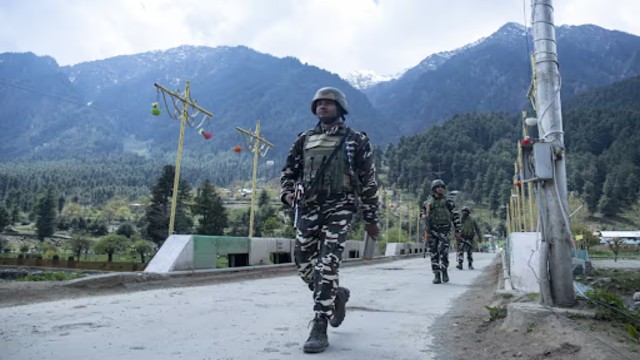
Indian paramilitary troops are now guarding the streets after a deadly assault in Pahalgam took the lives of 26 tourists. It marks the most serious attack on civilians in the region in over two decades. Shutterstock
India has taken strong action against Pakistan following a deadly terror attack in Jammu and Kashmir’s Pahalgam. This attack killed 26 people, including a foreign national. The Cabinet Committee on Security (CCS) met and announced major decisions after it found links between the attack and terror groups based in Pakistan.
India has now suspended the Indus Waters Treaty. This water-sharing agreement, signed in 1960 with help from the World Bank, allowed both countries to use water from six rivers. India controlled three rivers—Ravi, Beas, and Sutlej—while Pakistan controlled the Indus, Jhelum, and Chenab. Even during wars, this treaty remained in place. But now, India has paused it, saying it won’t continue until Pakistan stops helping terrorists.
Foreign Secretary Vikram Misri said the terror attack came just as Jammu and Kashmir had held peaceful elections and was moving forward with development. He confirmed the CCS reviewed the situation and made the following decisions:
The Attari-Wagah border has been shut. Only those who already crossed into India legally can return to Pakistan through this route, and they must do so before May 1, 2025.
Pakistanis can no longer enter India using SAARC Visa Exemption Scheme (SVES). Any such visa already given has been cancelled. Pakistanis currently in India with SVES visas must leave the country within 48 hours.
India also asked Pakistani military officials in their New Delhi embassy to leave the country within a week. These include naval and air advisors. India will also pull out its own military officials from Islamabad. Both sides will remove five support staff along with these advisors.
The number of people working in each country’s embassy will be reduced from 55 to 30 by May 1, 2025.
The Indian government has also asked its forces to stay alert and maintain high security across the country. Officials said they would bring the attackers to justice and take firm action against their supporters. Misri added that India would keep going after terrorists, just as it did in the recent extradition case of Tahawwur Rana.
The Water Resources Minister supported the suspension of the treaty. He said that earlier too, India had warned Pakistan that it would face consequences. He called the Cabinet’s latest decision a strong step.
The terror group that claimed responsibility for the attack, The Resistance Front, is linked to the banned group Lashkar-e-Taiba. This latest attack has again raised serious concerns about terrorism from Pakistan.
The Indus Waters Treaty has long been seen as a rare example of peaceful cooperation between India and Pakistan. But India's government believes Pakistan is using terrorism as a policy tool, and this forced a change.
Experts say Pakistan already faces serious water shortages. This move could worsen that crisis. In the past, Pakistan warned that breaking the water treaty could be seen as a serious threat.
India’s latest step shows how deeply it is frustrated by continued attacks from Pakistan-backed groups.















